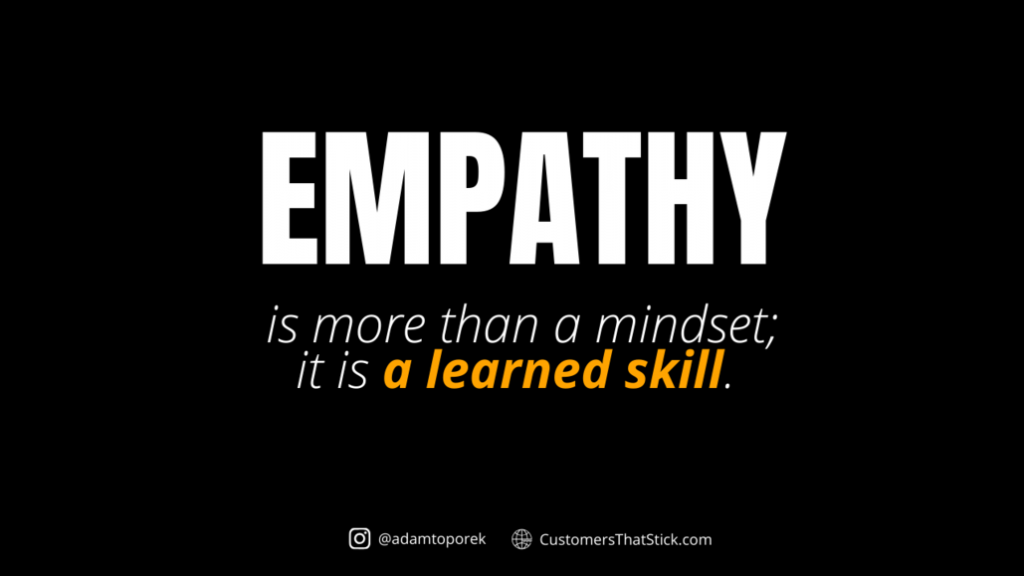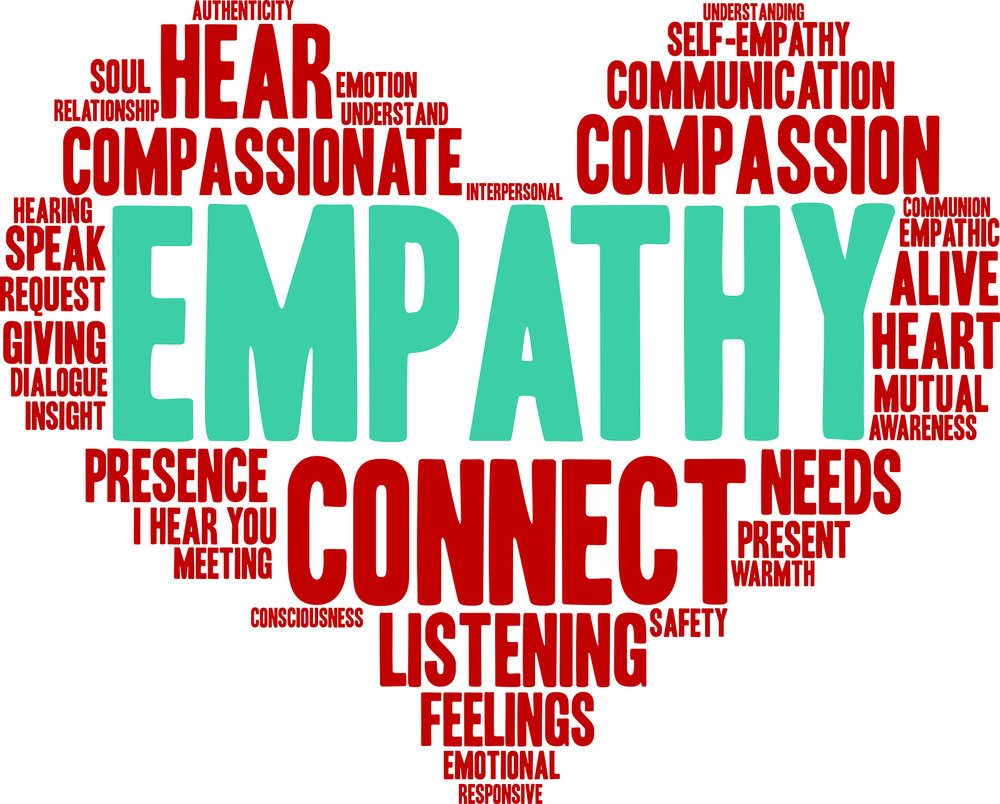Did you know that 98% of people have the ability to empathize with others?
Empathy is a word that is used often by many people. It’s commonly known that empathy is a good thing to have, but it isn’t always a priority in people’s lives. While a large majority of the population is capable of empathy, sometimes the practice of it is limited. But what is empathy, and why is it important?
Can empathy be developed, or are we born with a certain amount? Are some people just naturally better at empathizing? Is it really as important as some people say it is to practice empathy?
What is empathy?
Many confuse empathy (feeling with someone) with sympathy (feeling sorry for someone). Empathy involves an ability to perceive others’ feelings (and to recognize our own emotions), to imagine why someone might be feeling a certain way, and to have concern for their welfare.
In simple terms, empathy is the ability to understand things from another person’s perspective. It’s the ability to share someone else’s feelings and emotions and understand why they’re having those feelings.
Why Is empathy important:
In a person’s personal life: Healthy relationships require nurture, care, and understanding. A friendship or romantic relationship that lacks empathy and understanding will soon flounder. When people only think of their own interests, the other people in the relationships will suffer.
In the workplace: For many people, a workplace is a place for teamwork. It’s extremely important to take the time to relate to co-workers. Using empathy is a vital part of a smooth working relationship. Without it, it’s much easier to fall into disputes and disagreements.
Bosses who lack empathy are likely to subject their employees to unfair practices. Managers who are without empathy may push employees to work beyond what is healthy and reasonable or maybe unduly harsh when an employee makes a mistake.
Empathy can be taught.
We may find it hard to empathize with some people. But that doesn’t mean we can’t strengthen our empathy muscles, becoming more adept at perceiving others’ emotions, learning self-regulation techniques to help us not get overwhelmed by excessive emotional resonance, and finding ways to encourage perspective-taking.

So how can we be more empathetic?
- Put yourself in the person’s shoes. It’s easy to comment and judge. To say “This is no big deal” or “I don’t see why you feel this way” or “You’re over-reacting.” However, put yourself in the person’s shoes and walk a mile. Maybe they are undergoing great pain and difficulty. Without knowing the full details of a person’s problem, how can we make a conclusion? Imagine going through this problem right now, and try to understand things from their perspective. This will allow you to connect with their emotions and perspective better.
- Acknowledge the person’s feelings. One of the biggest problems in communication is that many people don’t acknowledge the other person’s feelings. Acknowledging means recognizing the importance of something. Think about emotions as the connecting point in a conversation. How you respond to an emotion is central to whether the person continues to share or closes off.

- Ask questions. Questions open a conversation. When someone gets the courage to share, especially a personal problem, asking questions encourages them to share more. Think about what the person said and ask meaningful questions.
- Don’t run ahead of the conversation. A big mistake people making when someone is sharing a problem is that they simply jump to the endpoint of the conversation. The more empathetic thing to do is to understand how that person is feeling first
- Don’t judge. Judgment shuts off a conversation. This is the same for prejudgment, which means forming a judgement on an issue (or person) before you have adequate information. The best way is not to pass judgement. Give the person the benefit of the doubt. Everyone is struggling to do their best in life, so why judge and bring someone down?
- Show emotional support. Last but not least, give emotional support. This means, give them your trust and affirmation. Encourage them. Let them know that no matter what happens, you have their back. Sometimes, what people are looking for is not answers. It’s also not solutions. Sometimes, all people are looking for is empathy and support.
The importance of empathy in everyday life cannot be oversold. By understanding how it works and can be augmented in ourselves and people around us, we have one of the key tools to cultural transformation. We have hope to help shape a more civil society, respectful discourse, understanding of others, and a humane world. At Anantam, we understand feeling heard and understood is a human need. Everyone needs to feel understood. Call/WhatsApp Ms Seema Agarwal: +91 98205 76682

